
Culture China
14:07, 24-Mar-2019
Love is blind: Wife reads to her blind husband for 50 years
CGTN
06:34

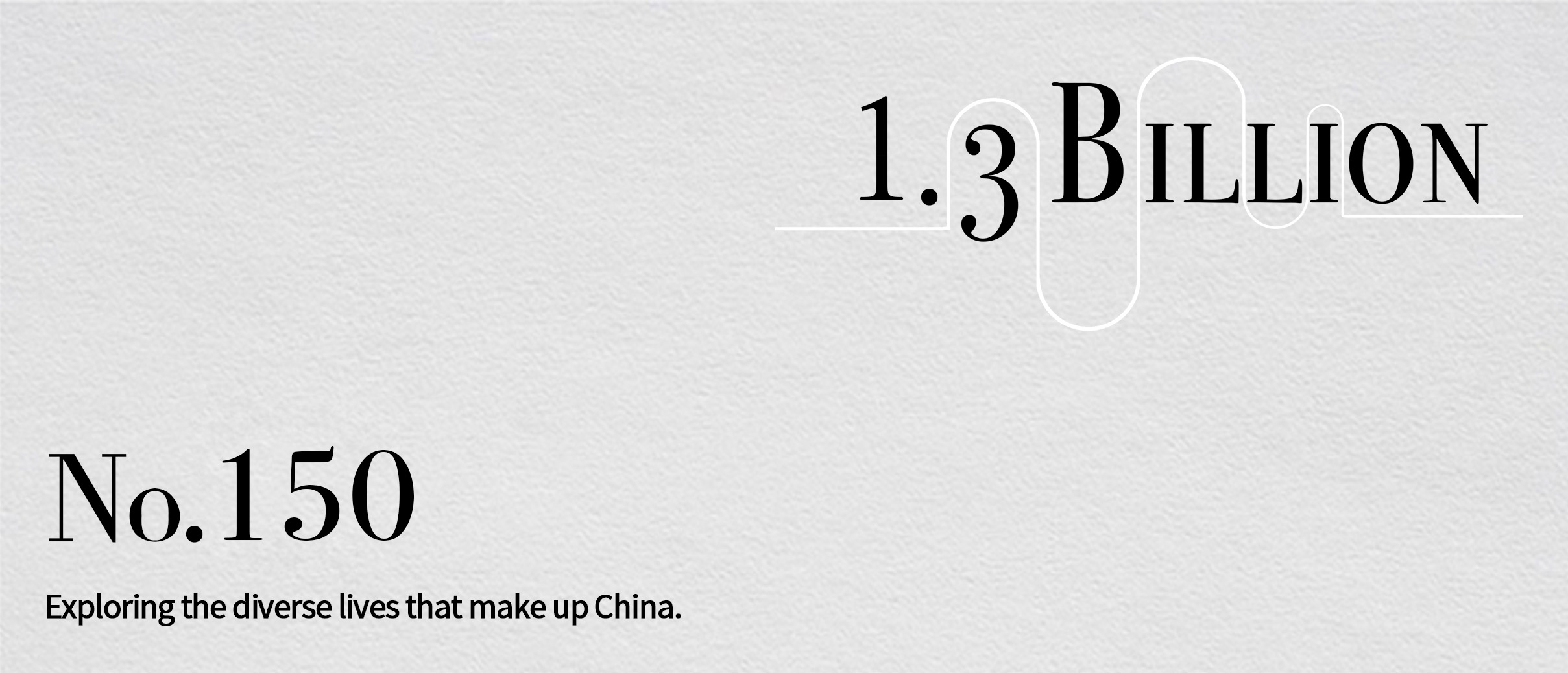
CGTN
CGTN
Dai Xueren, 72, loved reading when he was a kid. Then he joined the army and went blind in an accident while building a mountain tunnel.
His folks were worried about his marriage. They thought it was hard to find love for a blind person like him. Besides, Dai would not lower his standards. He insisted in looking for an educated girl so that she could read for him.
A neighbor introduced Wei Shuhua to him on October 1, 1969.
"About my first impression, I couldn't see if she was pretty, but I felt it from the way she talked," says Dai.
"He was a great storyteller," says Wei. "He knew everything and could make any dull story intriguing."
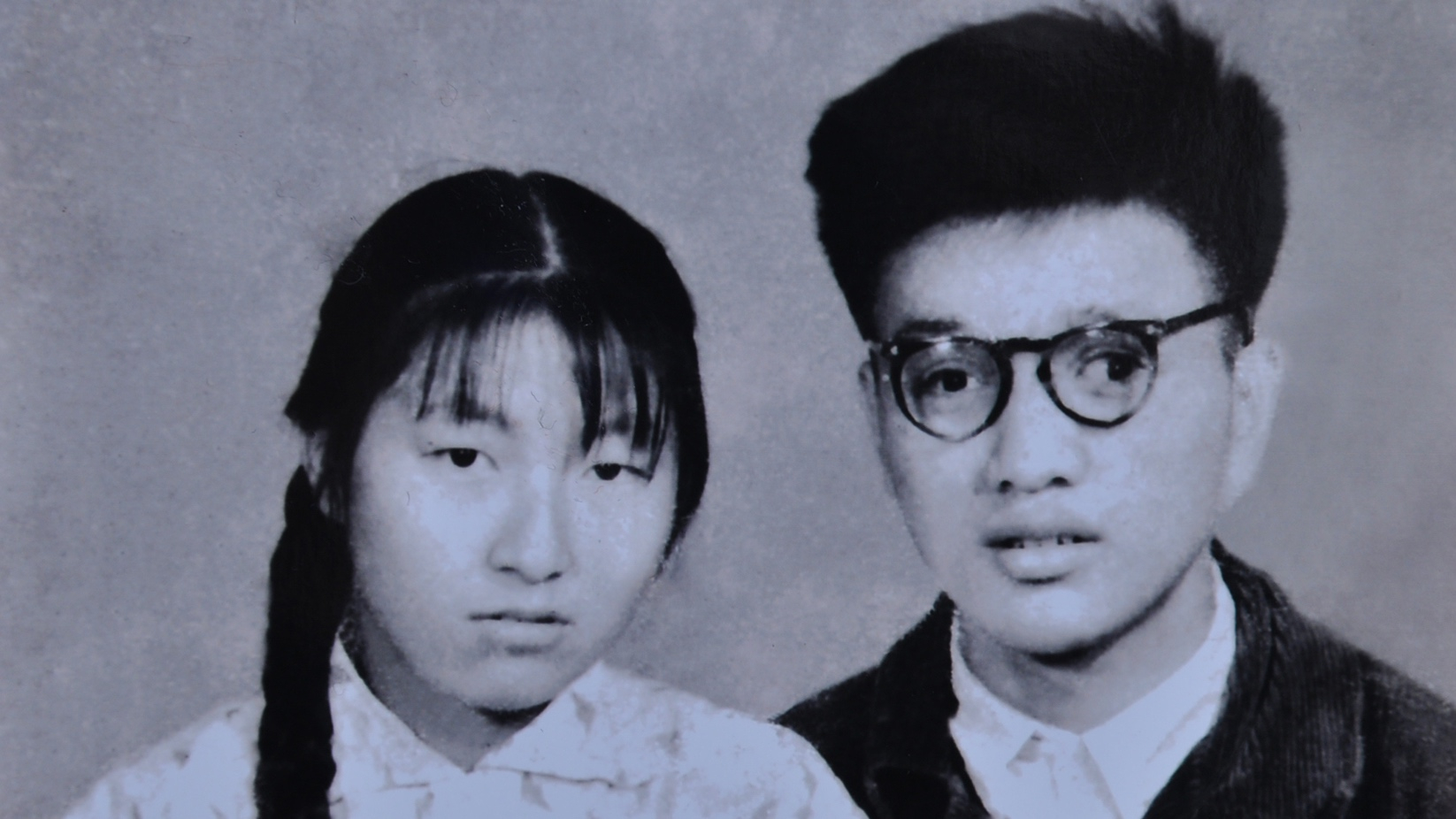
Photo courtesy of Dai Xueren
Photo courtesy of Dai Xueren
They went to the Slender West Lake in east China's Jiangsu Province on their first date. "She told me how everything looked like in detail. Being blind for two years, I could only tell her what things used to be like in my memory, while she told me what they looked like at the time. We enjoyed it very much," says Dai. "It was in the early '70s. She held my arm, not feeling embarrassed at all."
"He was very optimistic. He'd never complained about anything or anybody," says Wei. They soon entered a relationship. "Of course, there were obstacles. His parents seemed not to believe that an able-bodied girl would marry him because of love. They thought I could easily cheat on him."
"I wouldn't even blame her if she wanted a divorce. I could totally live alone," says Dai who was prepared for a short marriage. However, it wasn't an option for Wei. "I never thought about divorcing. We chose to be with each other, and we shall move on no matter what it takes."
They got married in 1971. From then on, Wei became Dai's "exclusive reader." "I knew I was going to be his eyes. I read for him because he couldn't do it, and that I wanted to do it."
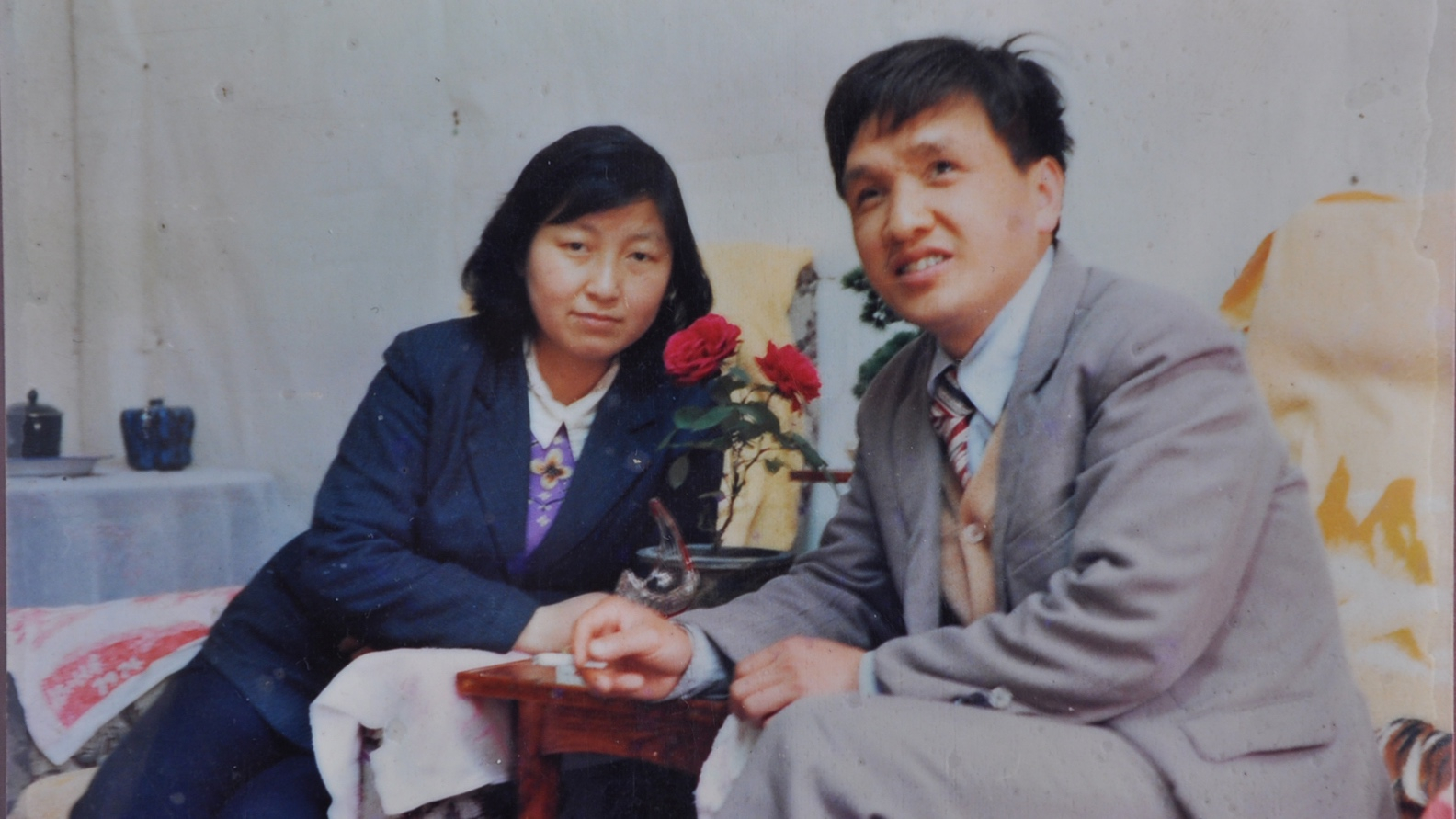
Photo courtesy of Dai Xueren
Photo courtesy of Dai Xueren
Having no kids to raise yet, they read a lot in their early twenties. "There was a novel-reading program on the radio. Unfortunately, it was cut halfway. He said, 'Let's buy the book and stop waiting beside the radio.'"
The couple was very frugal in daily life. Still, they bought books they liked regardless of the price. "The book called 'The Second Handshake' was in short supply. I went to several bookstores and came back with empty hands. Hearing that one of his comrade-in-arms worked in Xinhua Bookstore, I rushed over there and finally bought one with his help. I rode back home very quickly to read it to him. I liked the book, too. I've read it a hundred times," says Wei.
Dai would do as many chores as he could, so that Wei had time to read more for him.
"People would assume that we had troubles living together. But actually, he's almost nothing like a disabled person. He can take care of himself. He can cook and take baths all by himself. Everything in the house stays where it is. He knows where to get them," says Wei.
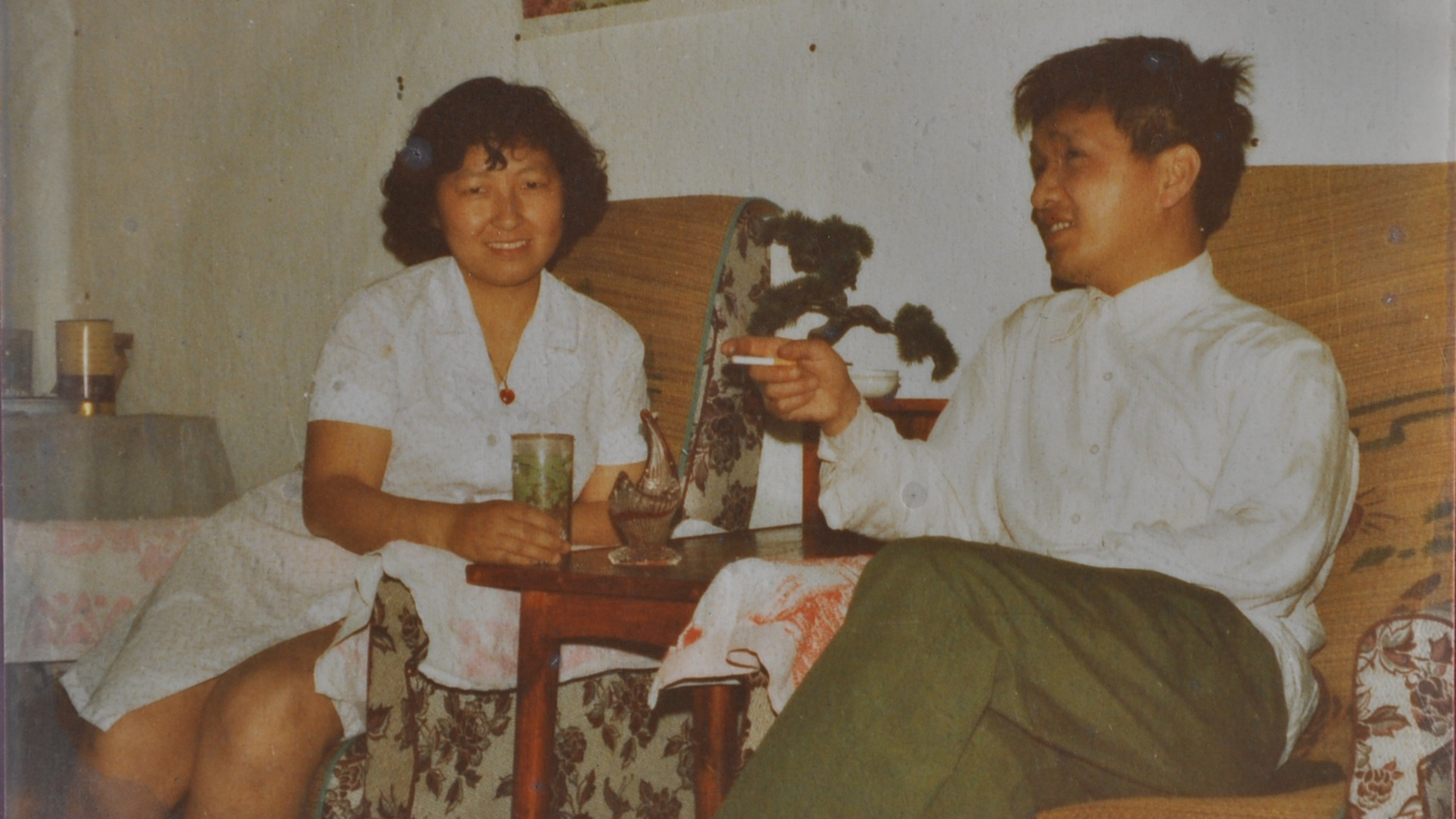
Photo courtesy of Dai Xueren
Photo courtesy of Dai Xueren
On the contrary, Wei is the one who was called a careless slowpoke. "I'm more like a gourmet than she's ever been. Why wouldn't one want to cook the food well? It doesn't cost much anyway," says Dai. He often teaches Wei to use the seasonings at the right moment.
Dai always thinks ahead. "When we were young, people egged my wife on quitting her job to look after me. But what if we are old and she outlives me? I can't leave her alone having no job or pension."
The factory's profits dipped when Wei was 42. Some of the workers had to be transferred to a private company in south China's Guangzhou City, where they could earn more. After taking into account of her family situation, Wei did not apply for the chance. On hearing of the opportunity, Dai asked his son to take him to the factory director to speak on behalf of Wei. "He told me not to worry, and that he could make it any way. He wanted me to know how it feels to travel by plane, and what it's like in the outside world," says Wei.
During the three years when Wei worked in Guangzhou, "we were on a tight budget," says Wei. "But he covered everything at home and took care of our son and himself. He'd been living frugally. Although every time I went home, he'd prepare all my favorite dishes and wait for me at the table."
"One day, I finally got to call him from Guangzhou. I didn't call to say anything in particular. I just wanted to hear his voice. I think that's what young people call 'love.' But we never said it."
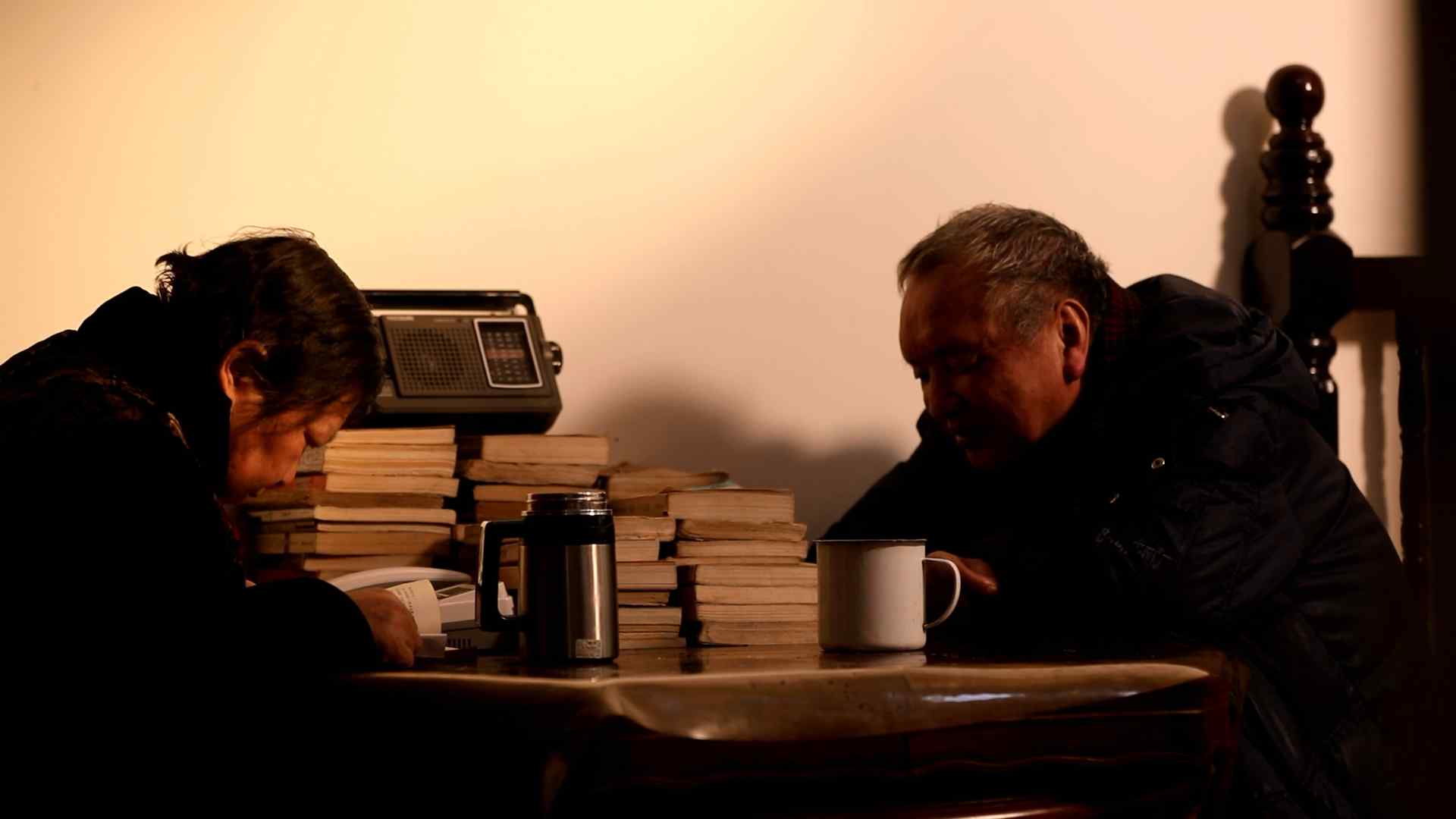
CGTN Photo
CGTN Photo
They have now been married for 49 years. "I've been planning for the perfect golden wedding ceremony," says Dai. "I want to take a photo with her. I also need to persuade her to travel around while she still can, like visiting Tianmen Square and the Great Wall."
"I can always watch them on TV," grins Wei.
"Watching them on TV doesn't mean anything to you. Only when you stand on top of the mountain, can you truly enjoy the beauty of nature," says Dai.
Dai considers himself a romantic person, even though after 50 years, neither of them has ever said the word "love" to each other. Their chemistry has bound them together for so many years, just like it is written in one of their favorite books by renowned Chinese writer Jia Pingwa:
"You are a tree beside the road when I herd sheep.
I found the grassland, yet my heart was left on the tree.
I'm a shepherd, while you graze in my imagination."

The story is one in The 1.3 Billion series exploring the diverse lives that make up China.
The story is one in The 1.3 Billion series exploring the diverse lives that make up China.

SITEMAP
Copyright © 2018 CGTN. Beijing ICP prepared NO.16065310-3
Copyright © 2018 CGTN. Beijing ICP prepared NO.16065310-3